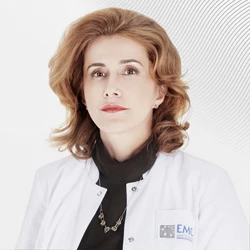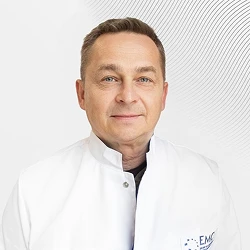Vaginal cancer
According to international criteria, experts divide vaginal cancer into stages:
-
stage 1: tumor up to 2 cm, does not extend beyond the boundaries of the vagina.
-
Stage 2: the tumor is more than 2 cm, captures neighboring tissues, but does not reach the walls of the pelvis.
-
stage 3: the tumor metastasizes, invades the pelvic walls.
-
Stage 4: the disease spreads to the bladder, urethra, pelvic bones and other organs.
CAUSES OF VAGINAL CANCER
Pathology rarely occurs as an independent disease. In most cases, it develops as a secondary cancerous tumor on the background of malignant neoplasms.:
-
of the cervix;
-
of the endometrium;
-
vulva;
-
ovichnikov et al.
Experts call chronic infections, most often HPV, as provoking factors.
SYMPTOMS AND SIGNS OF VAGINAL CANCER
Pathology is usually "silent" at the first stage of development. In rare cases, a woman may experience itching in the genital area. But even in this case, only a small percentage of patients go to the doctor.
If you have even minor complaints, make an appointment with a gynecologist .
As the tumor grows, the symptoms of the disease increase.:
-
itching increases;
-
abnormal discharge with an unpleasant odor appears;
-
cases of bleeding in the middle of the cycle and after intimacy become more frequent;
-
increased pain in the pubic area, radiating to the lower back;
-
sexual contact causes severe pain and discomfort.
Other problems may occur in the later stages of vaginal cancer.:
-
constant constipation, sometimes stool with blood;
-
the process of urination becomes frequent and painful, sometimes there is blood in the urine;
-
constant fatigue;
-
swelling of the legs.
DIAGNOSIS OF VAGINAL CANCER

At the EMC clinic, specialists approach the examination of patients in a comprehensive manner. The diagnosis is made based on the results:
-
gynecological examination and palpation;
-
for biopsies and other laboratory tests;
-
instrumental diagnostic methods (CT, MRI, PET/CT).
The examination of the patient in our clinic begins with a visit to a gynecologist or oncogynecologist. A specialist conducts an examination in a gynecological chair using mirrors. The first sign of vaginal cancer is a dense lumpy lump-like formation. On palpation of this lump, it may begin to bleed or the patient may feel discomfort.
The final diagnosis is based on:
-
vulvoscopy - examination of the vulva under multiple magnification;
-
colposcopies. During the procedure, the specialist evaluates the condition of the entrance to the vagina, its walls and the vaginal area of the cervix and clarifies the location of the formation;
-
histological examination of a tumor – helps to understand the nature of the disease and determine treatment tactics;
-
PET/CT and MRI to determine the involvement of lymph nodes in the pathological process.
In certain cases, the patient needs the advice of related specialists.:
The EMC employs all the necessary specialists. If necessary, they join the diagnostic and treatment process together with an oncogynecologist.
METHODS OF TREATMENT OF VAGINAL CANCER
The choice of treatment method depends on the stage of vaginal cancer, the degree of metastasis, the nature of the tumor, etc.
The EMC employs the strongest international team of doctors. Specialists use modern treatment methods in their practice, which have proven their effectiveness:
-
all types of surgical interventions;
-
focused radiation therapy (radiosurgery);
In the case of vaginal cancer, EMC oncogynecologists perform the following operations:
-
local excision of the tumor
-
removal of a tumor with adjacent tissues
-
combined operations with related specialists (if indicated).
In the late stages of vaginal cancer, when metastases occur or the tumor grows deep into the tissue, chemotherapy or radiation therapy are used. In some cases, specialists use a combination of these two methods of treatment.
ADVANTAGES OF CONTACTING THE EMC
-
the latest generation of equipment and our own histological laboratory allow our patients to undergo a comprehensive examination in the shortest possible time and within the framework of one clinic.
-
we work according to modern European and American protocols.
-
we choose the most effective treatment in each specific case at multidisciplinary consultations with oncogynecologists, radiologists, chemotherapists and other related specialists.
-
we take care of the reproductive function of young cancer patients. Before treatment, patients can save their own biological material in the EMC in order to use it after recovery on their own or with the help of surrogacy.
-
we prefer organ-preserving operations.
Why the EMC
The first and only clinic in Russia, created in the image of the world's leading clinics
EMC is a multidisciplinary center offering patients a high level of medical services and a personalized approach
Worldwide recognition and awards
 Learn more
Learn more
Worldwide recognition and awards
 Certificates and licenses
Certificates and licenses
Make an appointment for a consultation
Specify your contacts and we will contact you to clarify the details
Reviews
Questions and answers
and new products of the EMC


.webp)



.webp)



.webp)
